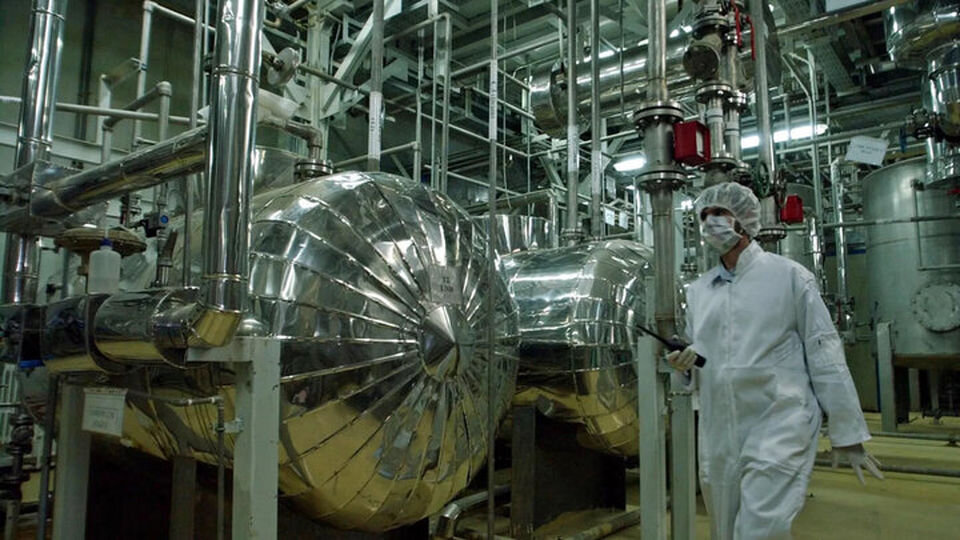 A new assessment released by US intelligence concludes that Iran is boosting its nuclear capabilities but is not pursuing the development of nuclear weapons. According to the Office of the Director of National Intelligence’s assessment, Iran has “undertaken research and development activities that would bring it closer to producing the fissile material needed” to produce a nuclear weapon. However, despite accelerating its nuclear programme since 2020, it is still not yet capable of producing a weapon. “Iran is not currently undertaking the key nuclear weapons-development activities that would be necessary to produce a testable nuclear device,” the assessment notes.
A new assessment released by US intelligence concludes that Iran is boosting its nuclear capabilities but is not pursuing the development of nuclear weapons. According to the Office of the Director of National Intelligence’s assessment, Iran has “undertaken research and development activities that would bring it closer to producing the fissile material needed” to produce a nuclear weapon. However, despite accelerating its nuclear programme since 2020, it is still not yet capable of producing a weapon. “Iran is not currently undertaking the key nuclear weapons-development activities that would be necessary to produce a testable nuclear device,” the assessment notes.
Under the 2015 Joint Comprehensive Plan of Action (JCPOA) between Iran the P5+1 group of countries (the USA, UK, France, Russia, and China plus Germany), Iran agreed to limit its nuclear development in return for the lifting of sanctions. However, after former US President Donald Trump withdrew from the deal and reimposed sanctions in 2018, Iran began to gradually roll back on the restrictions imposed by the JCPOA, including oversight by the IAEA after the European parties to the agreement failed to put any measures in place to mitigate those sanctions. This resulted in a rapid development of its nuclear programme.
The US report added that Iran continues to exceed the limits set by the JCPOA, saying Iran has described its acceleration of its nuclear programme as a “reversible response to the U.S. withdrawal from the agreement.” The report said Iran undertook to revert back to the limits set by the deal if the US “provided sanctions relief and fulfilled its JCPOA commitments, and if the International Atomic Energy Agency (IAEA) closed its safeguards investigations related to three undeclared nuclear sites.”
“Iran continues to increase the size and enrichment level of its uranium stockpile beyond JCPOA limits,” the assessment states. “Iran continues to exceed JCPOA restrictions on advanced centrifuge research and development, and continues uranium enrichment operations at the deeply buried Fordow facility, which was prohibited under the JCPOA.”
However, Tehran has consistently maintained that its nuclear programme is entirely for peaceful reasons and that Iran has no plans to develop nuclear weapons. The Supreme Leader, Ayatollah Seyed Ali Khamenei, earlier issued a fatwa expressing that the purchase, development, and use of nuclear weapons contradicts Islamic precepts and are thus prohibited.
Earlier this year, Foreign Ministry spokesperson Nasser Kan'ani and other officials stressed that Iran would carry on with its peaceful nuclear energy programme and "constructive" cooperation with the IAEA, regardless of any political pressures.






